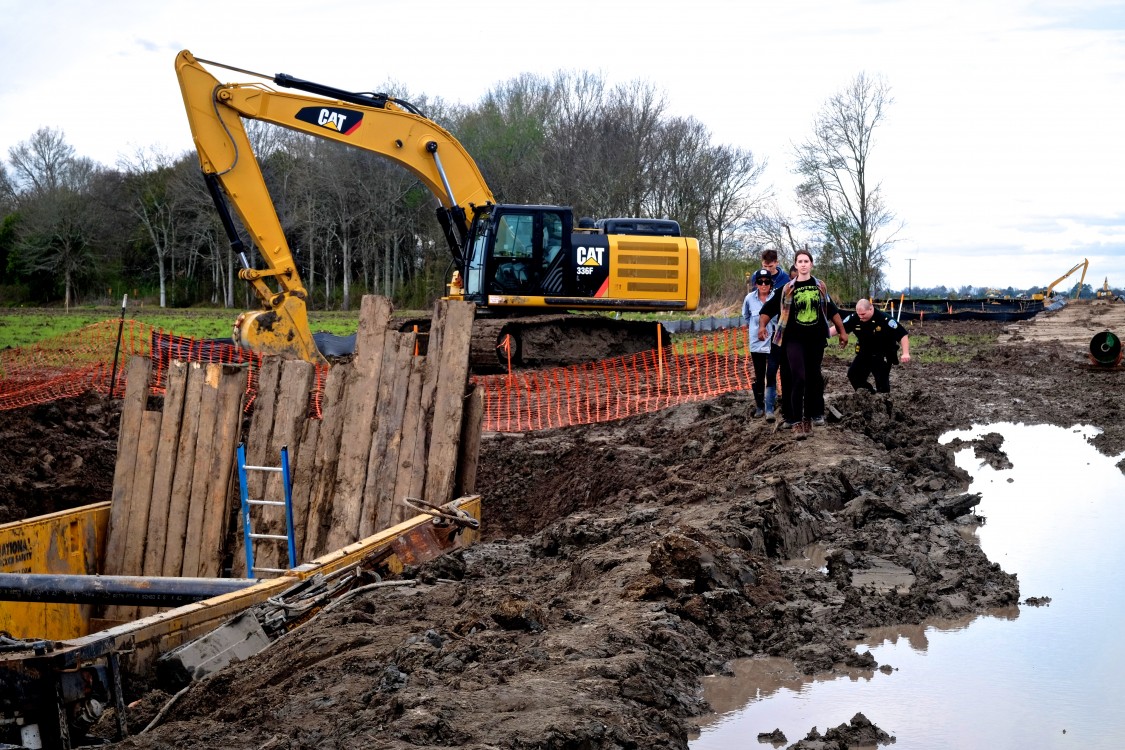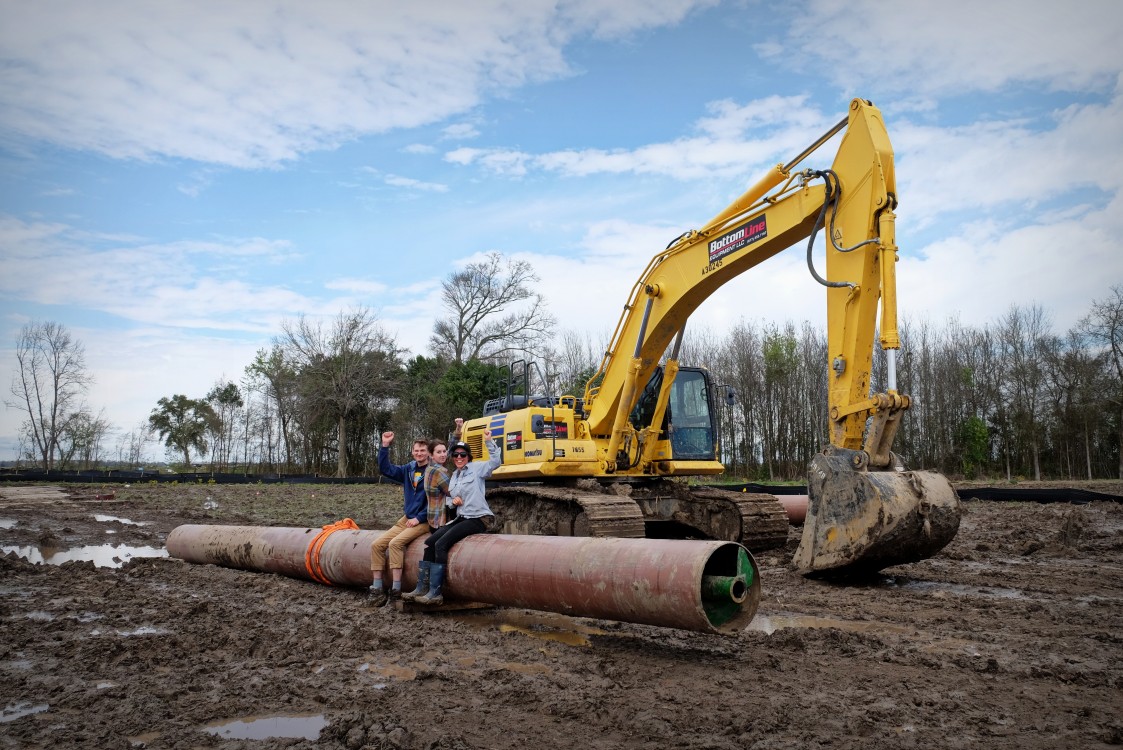
New direct action resistance and arrests, along with legal roadblocks, are elevating the Bayou Bridge Pipeline to a level of national discussion reminiscent of the Dakota Access Pipeline conflict of 2016. Curiously, the same company in charge of DAPL, Energy Transfer Partners, co-owns the Bayou project in Louisiana that a legion of opposition now threatens to halt.
Most recently last week, three protestors were arrested for trespassing as they attempted to block any further construction of the pipeline through the environmentally sensitive Atchafalaya Basin. The arrests came following a Feb. 23 preliminary injunction issued by U.S. District Court Judge Shelly Dick that prevents Energy Transfer Partners from building the oil pipeline through the Basin.
The court stopped construction of the pipeline "in order to prevent further irreparable harm until this matter can be tried on the merits,” according to the injunction. Last Tuesday, Judge Dick clarified her ruling stating that construction can continue on the pipeline but not in the Atchafalaya Basin.
Despite the hopeful ruling, protesters know they face a long season of resistance to bury the project entirely. “We are willing to face arrest to stop this company from this unethical project,” Meg Logue, one of those arrested last week, told Occupy.com.
Like the Standing Rock Sioux tribe's protest of the Dakota Access Pipeline, opponents of the Bayou Bridge Pipeline have argued its construction will destroy the fragile ecosystem of the Atchafalaya Basin, a rich natural resource used by its residents going back centuries, when the indigenous Choctaw people navigated its waters and depended on it for sustenance.
Opponents also point to ETP's building and safety violations on other projects, arguing that the U.S. Army Corp of Engineers doesn't have the capacity to enforce environmental regulations in the Basin. Nonetheless, the Corp gave the go-ahead for ETP to begin construction.
“We’ve been consistently ignored,” Ben Quimby, another protester arrested last week, said. “This action was taken after taking the formal steps."
Earthjustice, a San Francisco-based advocacy group dedicated to protecting the environment through effective legal action, sued on Jan. 11 to prevent the pipeline's construction. “The court’s ruling recognizes the serious threat this pipeline poses to the Atchafalaya Basin, one of our country’s ecological and cultural crown jewels,” Jan Hasselman, an Earthjustice attorney, said in a statement following the court injunction.
Other groups have thrown their weight – and their significant national organizing presence – behind opposition to the pipeline, like 350.org, which vows to continue resisting the pipeline's construction.
“Ideally we would see construction stop everywhere. Just because land isn’t federally protected doesn’t mean it’s not ecologically or culturally important,” Alicia Cooke, board president of 350 New Orleans, told Occupy.com.
“But this injunction is still a major victory. It tells ETP that our wetlands matter more than their construction schedule. Even the damage inflicted on the Basin in just the past three weeks is devastating.”
3 WAYS TO SHOW YOUR SUPPORT
- Log in to post comments















